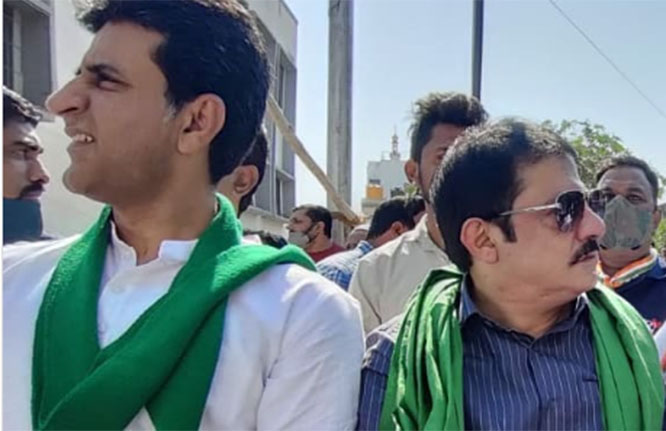A fresh cache of files related to the investigation into the late convicted sex offender Jeffrey Epstein contains documents that reference President Donald Trump and other high-profile figures including Microsoft co-founder Bill Gates, Commerce Secretary Howard Lutnick and British billionaire Richard Branson.
Here are key details about mentions of the celebrities, none of whom have been accused of wrongdoing:
Donald Trump
The files included an FBI-compiled list of sexual assault allegations related to President Donald Trump -- many of them involving anonymous callers and unverified tips.
The allegations -- some secondhand -- were sent to the FBI's National Threat Operations Center which receives information by phone and electronically.
The document suggests that investigators followed up on a number of the tips. Some were deemed to lack credibility.
Trump has long denied any wrongdoing related to Epstein.
In a statement accompanying Friday's file dump, the Justice Department said: "Some of the documents contain untrue and sensationalist claims against President Trump that were submitted to the FBI right before the 2020 election. To be clear, the claims are unfounded and false."
Bill Gates
In a draft email among the documents, Epstein alleged Gates had engaged in extramarital affairs.
In the mail, Epstein wrote that his relationship with Gates had ranged from "helping Bill to get drugs, in order to deal with consequences of sex with russian girls, to facilitating his illicit trysts, with married women."
Richard Branson
Files show friendly relations between the two billionaires.
In an email sent to Epstein on Sept 11, 2013, Branson wrote "It was really nice seeing you yesterday. The boys in Watersports can't stop speaking about it! Any time you're in the area would love to see you. As long as you bring your harem!"
Elon Musk
The files contain numerous mail exchanges between Epstein and billionaire entrepreneur Elon Musk.
In November 2012, Epstein sent Musk an email asking "how many people will you be for the heli to island."
"Probably just Talulah and me. What day/night will be the wildest party on your island?" Musk replied.
Andrew Mountbatten-Windsor
The disgraced former prince invited Epstein to visit him at Buckingham Palace in September 2010 while the financier was making a trip to London.
An email exchange shows Epstein contacting Andrew to ask: "What time would you like me... we will also need... private time."
Andrew replied: "we could have dinner at Buckingham Palace and lots of privacy."
Howard Lutnick
Emails show that Epstein and businessman Lutnick -- currently Trump's commerce secretary -- made plans in December 2012 to lunch on Epstein's Caribbean island.
"We are heading towards you from St. Thomas" Lutnick's wife wrote to Epstein's secretary, asking where they should anchor.
Steve Tisch
Several mails suggested Epstein connected Steve Tisch, 76, producer of the movies "Forrest Gump" and "Risky Business" and the co-owner of the New York Giants football team, with multiple women.
In one exchange with Tisch, Epstein describes a woman as "russian, and rarely tells the full truth, but fun."
Zohran Mamdani's Mother, Filmmaker Mira Nair
New York City Mayor Zohran Mamdani's mother, Mira Nair, attended an afterparty at convicted sex trafficker Ghislaine Maxwell's house for her 2009 film "Amelia", reveals a new set of Epstein files.
An email dated October 21, 2009, sent by publicist Peggy Siegal to Jeffrey Epstein, also surfaced in documents. The email, sent in the early hours, right after Siegal left the gathering, gives an insight into the afterparty.
The party was also attended by former President Bill Clinton and Amazon CEO Jeff Bezos.
"Just left Ghislaine's townhouse...after party for film. Bill Clinton and Jeff Bezos were there...Jean Pigoni, director Mira Nair....etc," the email read.
The email described the reaction of guests to Nair's film as "tepid."
"Film received tepid reaction although women like it much more...Hillary Swank and Gen: at stupid party in Bloomingdales cheap sportwear department....very weird. Studio went for free party from store and windows for a month....Going to be in Wall Street 2 tomorrow ....more to come. xoxo Peg," the email read.








Comments
Add new comment